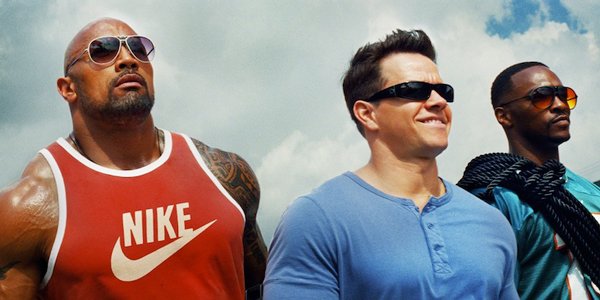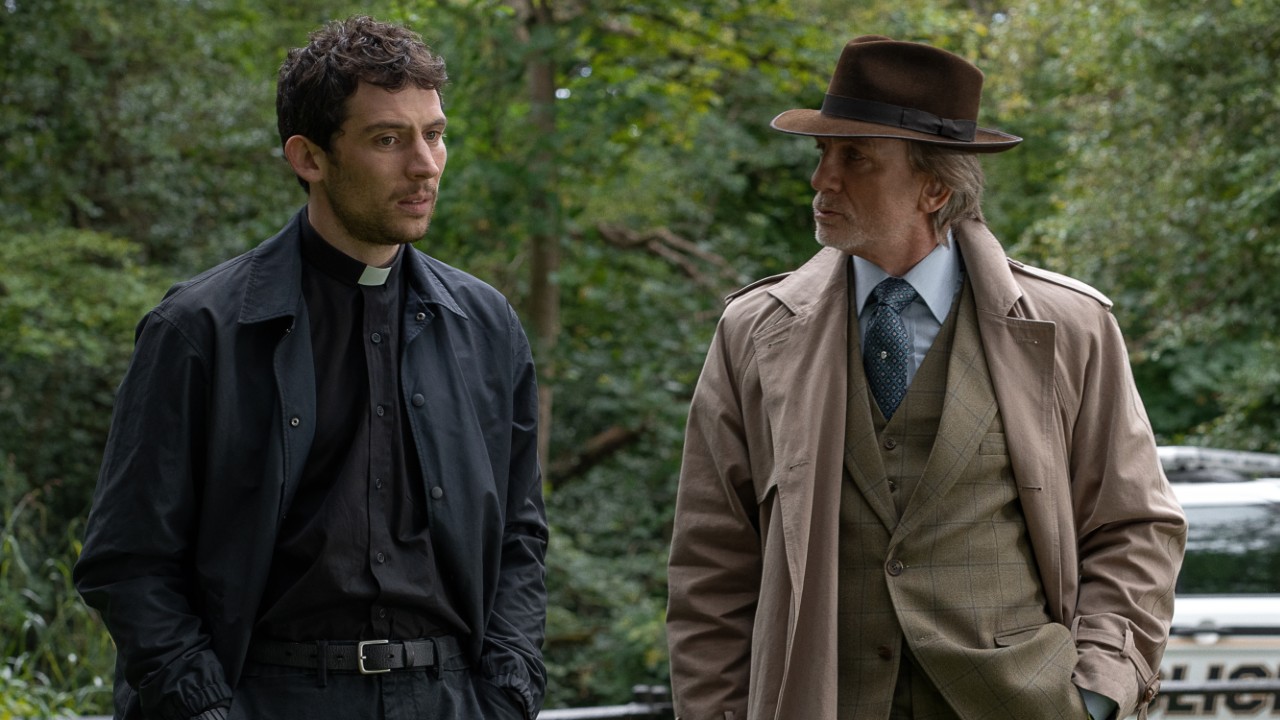Why Pain & Gain Is A Masterpiece Of Star Power

Pain & Gain, like a film noir, begins at the end. Mark Wahlberg, who for two decades has made a career off of being muscled, dopey and likable, is doing sit-ups in the golden Miami sun, chanting to himself "I am big! I am strong!" He's circled by the Miami-Dade Police, and we cut to flashback just as Wahlberg is splayed on the roof of a cop car: a goner.
We know from the very start that Wahlberg will come to no good end in Pain & Gain, but just in case you've forgotten, the proof comes again halfway through the movie, in a single profile shot. The moment Ed Harris appears onscreen, as the private detective hired to hunt down the bodybuilders who kidnapped and tortured a Miami businessman, the audience knows that Wahlberg and his crew are irrevocably fucked. Just as the presence of Wahlberg says "lovable doofus," the presence of Harris says "ruthless competence." Bay expresses these things not through camera or script or any of his famous cinematic tricks; he says it through the language of star power, which in Pain & Gain he completely masters.
For the last decade Bay has been credited with demolishing the old star system, making a trilogy of wildly successful movies that nominally starred Shia LaBeouf, but more importantly the CGI robots and the destruction they could cause. Though he helped create a star in Will Smith in Bad Boys, and helped destroy one with Ben Affleck in Pearl Harbor, Bay has never seemed particularly invested in the star-driven model of making blockbusters-- if anything, Bay himself is the star of his movies. The Transformers films brought in the likes of John Tuturro and Frances McDormand to mug and be humiliated; Bay cared so little about the female lead of the series, Megan Fox, that he unceremoniously replaced her with a Victoria's Secret model.
But Pain & Gain, which at $25 million is unquestionably Bay's smallest movie, relies entirely on the language of star power to make itself clear. A dark, dark comedy featuring startling violence and abhorrent behavior by nearly everyone involved, Pain & Gain threads a fine needle of satire that practically no one thought Bay could accomplish. But by casting nearly everyone in roles that comment on or subvert their public personas, Bay puts the satire entirely on the surface.
Wahlberg is cast here in the only role that's ever really suited him, a buff guy with dreams a bit bigger than his intelligence will allow him to reach. The fact that his dreams involve kidnapping and torture this time sets the catalyst for the entire film, and allows for the complete shift to a dark tone-- this is what happens when Dirk Diggler is lured not by sex, but by violence, toward success. That contrast is even sharper with the character played by The Rock, a guy who is the physical manifestation of the two poles of The Rock's career. He's an ex-con who claims his God-given gift is "knocking people the fuck out" (as The Rock did in a long wrestling career, in Fast Five, The Scorpion King, etc.), but he's also a born-again Christian who tries to befriend their victim (just like you'd expect from the star of Tooth Fairy and Journey 2: The Mysterious Island).
The third schemer of the bunch is played by Anthony Mackie, not nearly as famous as Wahlberg or Johnson, but that's part of the point-- he's skinnier and dumber than the other two and furious about it, like the little kid dogging after older siblings who can't shake him. Mackie's relative lack of fame allows him to be the butt of the movie's dumbest jokes, but also the character most capable of surprise. Wahlberg and Johnson, in completely upturning their personas, will act only in ways that continue to contradict their public selves; Mackie, an up-and-comer, is the wild card.
And then there's Ed Harris, the scrawny, pale, well-dressed antithesis to the bulked-up yahoos we've been following for the entire film. Harris arrives as an authoritative, put-together presence who seems to come from an entirely different movie-- and in fact he does, drawing on our memories Apollo 13 and The Truman Show and Bay's own The Rock to instantly be the calm and competent foe who will bring these ridiculous criminals down. Unlike Wahlberg and Johnson (and to some degree Tony Shalhoub, turning douchebag after years of being likable on Monk), Harris isn't playing against type at all. As the voice of reason who arrives in the film after an hour of lunacy, Harris is practically a parody of the triumphant experts he's played for decades, and the only human onscreen you can actually root for. Bay brings in Harris not just because he can play an authority, but because his very presence means an authority who will not be beaten.
Your Daily Blend of Entertainment News
Though Bay is careful to keep all this satire from turning into outright parody, there are a few moments where he can't help himself. As the three crooks strip down to begin hacking apart some bodies they need to hide, Wahlberg is revealed to be wearing white Calvin Klein boxer briefs, the exact skimpy clothing that made him famous. Later on The Rock is told to grill a pair of hands to remove the fingerprints, and when Wahlberg returns he grimaces at the smell-- literally smelling what The Rock is cooking. These are silly in-jokes that don't do much to make these characters anything but fractured reflections of the stars' own personalities, but they're also the clearest distillation of the film's purpose. After nearly a decade of preferring digital robots over flesh and blood humans, Bay has made a movie that's not just featuring stars, it's about them. In walking the impossible tightrope of violent satire, Bay succeeds by calling up one of cinema's most powerful and least-understood languages: the relationship the audience has with the people onscreen before the film even begins.
Staff Writer at CinemaBlend

